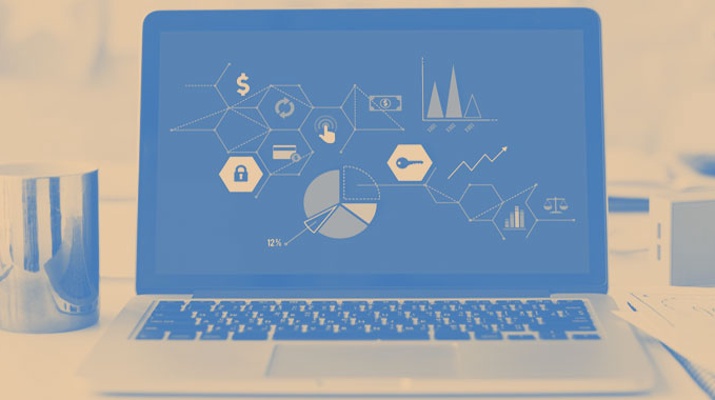Benefits of Optical Character Recognition (OCR) Technology

Benefits of Optical Character Recognition (OCR) Technology
Contributed ContentOptical character recognition (OCR) technology has the potential to transform how businesses work. This article explores the benefits and uses of OCR.
Optical Character Recognition (OCR) technology has a number of significant business uses beyond generating digital versions of handwritten or printed text.
In fact, OCR is already being used for automation and optimizing business processes, in addition to a range of other enterprise-level uses.
OCR originated in scanning printed, text-heavy books. It's now a technology capable of reading texts as varied as license plates, advertisements, and road signs.
Google Street View uses OCR technology, as does Dropbox. It can also translate text from images in real-time on Google Translate. In each of these instances, and for many others, OCR technology is used.
This article will cover how OCR solutions function and detail some of their potential business impacts.
Common Applications of OCR
Many different industries use OCR technology for multiple tasks, including digitizing documents, enhancing security, and improving accessibility.
Digitizing Paper Documents
Digitizing paper records helps businesses beyond saving paper.
These records are now able to be archived, sorted, searched and freely transferred. This results in new levels of intelligence and adaptability for many businesses.
One burdensome task that OCR can eliminate is manually entering contacts gathered at a trade show or conference into a contact management system or CRM.
Using an OCR application capable of reading business cards, contacts can be translated into a digital form instantly.
This serves as a platform to connect with new business opportunities.
OCR can also help whenever an enterprise is collecting data in a structured, repeatable format with a high transaction frequency.
Managing Documents
For any business that deals with a regular stream of varied documents, the ability to sort them is absolutely crucial.
While sorting was done manually in the past, OCR applications possess a number of advantages over manual sorting.
OCR systems can handle both handwritten and printed text.
They can also identify document types and parse data according to complex business rules.
Offering Assistive Solutions
Employees or customers with a visual impairment often require a means to convert paper documents to digital text. OCR can deliver a solution that feeds written text into a text-to-speech application.
Digitizing Historical and Cultural Records
For institutions like galleries and museums, historical records can span decades and even centuries.
Digitizing these records is vital to preserving them since written records can be easily damaged by fire or water or can degrade over time.
OCR technology can enable the preservation of culturally important documents and allow for quick searching.
OCR enables you to share these records all over the world through the internet.
Providing Secured Access
From driver’s licenses and passports to insurance certificates and auto plate numbers, OCR solutions can quickly and efficiently handle all the varied forms of personal identification.
This allows commercial and civic institutions, including police departments and airports, to process personal data with a minimum of error due to manual processing issues.
OCR technology can automatically verify user identities in real-time.

OCR prevents fraud attempts by using fake documents by comparing data and photos of a database-stored ID document to a selfie or document photo provided by a user.
Translating Between Languages
OCR technology detects text content in an image and extracts the identified text into a machine-readable character stream, at the same time detecting the language.

The technology can be applied to street signs or handwritten texts using the Google Translate mobile app. Working instantly, it uses a mobile camera as a scanner.
The OCR-based app is capable of working with more than 100 languages.
Technologies Behind OCR
OCR is based on Machine Learning techniques that localize text in an image and understand what it says.
First, Convolutional Neural Networks (CNN) capture an image and identify graphical patterns for further recognition and transition into text.
After that, OCR algorithms identify all the letters labeled by CNN in the first stage.
Finally, Natural Language Processing (NLP) algorithms articulate sentences by uncovering the logical structure and connection between words. This produces a document a human can understand.
There are a number of open-source and commercial OCR solutions available on the market today. The most critical factor for an OCR system is recognition accuracy.
When using OCR for ID documents recognition, for example, the following OCR engines have been evaluated via research, and the results have been summarized as below:

As the table demonstrates, Google Vision turned out to be the most robust and accurate solution for text recognition from ID documents.
To choose the most accurate OCR solution for performing another task, for example, a vehicle number-plate recognition, a new research must be performed.
OCR Technology Makes Businesses More Efficient
To successfully implement OCR technology in your software product, it’s crucial to identify business goals, evaluate data available from both open sources and your own datasets, and decide if additional security measures are needed to back up an OCR engine accuracy failure.
Additionally, creating a partnership with a credible machine learning consultant has the potential to achieve attainable enterprise goals and benchmarks. They can also help you select the OCR architecture, tools, and services most appropriate for your individual business case.
